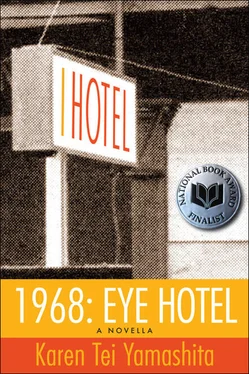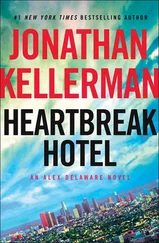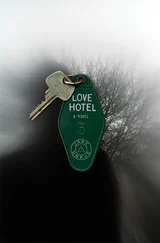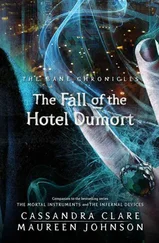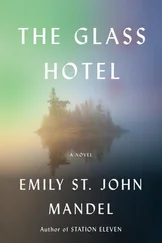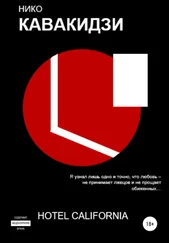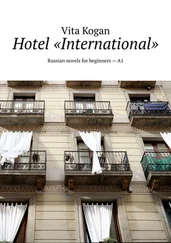I say, “Maybe you taking this thing too far. After all, just a cookbook. Me, I still got to go out and protest, argue with the mayor. Stop this eviction. If I don’t do that, I got no place to live. What’s a cookbook?”
“Not just any cookbook,” he says. I can see he’s fighting loneliness. Working out his freedom. He makes arrangements of food and paint. We go to the markets and he sketches everything. When we cook, he’s got his paintbrush right there in the kitchen, and he gets the inspiration. Quick brush work. He’s painting everything. Knives and woks, ducks and bamboo, lobsters and mangos. Step by step and more poems. It’s all there. Pretty soon, you see a whole world.
Meantime, I’m telling my story to Jack, who’s taking it all down on his typewriter. He’s always arguing, “We can’t say you cooked in the Great Hall for Nixon. It never happened.”
“So what? In my mind, it happened.”
“What about this story about you and Ho Chi Minh in Paris?”
“That’s one of the best stories.”
“And this one, cooking for Imelda?”
“She goes wild for my pancit. She goes so wild, she worked it into her love cosmology.”
“When were you in Yokohama?”
“That’s really true. I docked there with the merchant marines. I got a girlfriend there. Wanna see her picture? Yoko like Yoko Ono.”
“Like Yoko-hama.”
“Hey, I forget to tell you all my girlfriends. We got to put them in.”
“You got a girl at every port, right?”
“You know it.”
“I give up.”
“In my long life, there’s no work I don’t do. I do everything. I been everywhere. If I don’t do it with my own two hands and my back, stooping with my legs, walking with these old feet, I do it with my head. I fish up in Alaska. I do canning work. I do stoop labor and cut asparagus, artichokes. Pick tomatoes, strawberries, grapes. I carry a gun for the U.S. military. I build houses. I plant flowers. I build bridges. I sell grocery. I’m a bartender. I work the dock. I organize for the union. I gamble. I bust some butts in my time. Short time I do acting jobs in Hollywood. Dance with Fred Astaire. I play the ukulele in Honolulu with Don Ho. And all the time, I got the women. You write that down.”
“Where’s Paul? Let him do this. Hey, Chen, I got a postcard from Paul. He’s in Taiwan. When’s he coming back?”
Wen shrugs. “Haven’t heard.”
“The Okada book came out and he left. I think we worked him too hard.” He shakes his head, then looks at me. “Is this a cookbook or a fake autobiography?”
“Nothing fake here. I’m for real. I’m your real Makoi.”
“What?”
“Makoi. Makoi. You don’t know?”
“I’m not ghostwriting no imaginary autobiography, McCoy or not.”
“Why not? All the recipes I give you: authentic. This one goes back to Song Dynasty, original recipe with original poem. Taste travels to you from eight centuries.”
Wen says, “He’s right. Anyway, you’ve been doing the research. You should know. A whole history of civilization in a single dish. In time, everything else vanishes, but the dish can be recreated.”
“Food is made in America, but the recipe is guaranteed authentic, put your mark of good housekeeping. O.K., sometimes I change something here and there. Working to perfection, but I’m like the artist. Add my signature. But my life? My life is a dream. It’s what I got. What you want? Take it away?”
Wen’s got his brush out, splashing color. Dark red plump chunks of lady’s buttocks. Almost feel the quiver. Then the poem. Brush goes in quick flashes. Swish. Swish. Poem’s like cuisine. Makes the world sensible. Ingredients in the head, then apply fire. Have you eaten today?
10: All the Things You Are
What thoughts I have for you tonight, for I walked down Kearny under the shadow of an invisible hotel with a piano improvisation: all the things you are. Sweet poet. Sweet lover. Monk of the Tenderloin. Master Konnyaku. Fillmore Pilipino priest of ten thousand pianos. Play a song for former lovers meeting in the howling rain.
A drenched, unshaven man disappears in a steamy cloud behind the glass of a telephone booth.
Paul?
Wen-guang? It’s been a long time.
Yes. I need a favor.
Where are you? Bad connection.
It’s the rain. Did you hear that? Thunder. I’m at the gas station. Bottom of the hill. You know the one?
Car trouble?
No. They’ve condemned my house.
What?
All this rain. The foundation is slipping. They’ve cordoned it off.
Shit.
I’ve removed your things. What you left. And there’s more. Could you come? I borrowed a truck. I’ve been filling it up.
Shit! I heard that one.
That was close.
I’ll be there.
Sitting in your teahouse made from the refuse of the demolished Fillmore, the rain is softer, drenching the hydrangea along the bamboo wall. The spirits of those old Victorians seep through the wood and curl around your tea. Some are raucous spirits, dark panels pulled from dance floors and smoky bars, titillating tunes of blues and bebop. Some are cloistered spirits set in dark hardwood cherry, hoarding precious leathered first editions. What of those books? The music and the words now silent. Konnyaku, the three-legged, one-eyed cat, curled in a disheveled ball next to a warm teapot.
Meanwhile, the rain crashes in great waves across the Golden Gate. Cars slither precariously, headlights groping forward. Up the winding hill, two small rivers of mud and debris rush past on either side of the traffic parade. At the top of the hill, the cypress point to the ocean in the direction of the windswept storm.
A drenched man is running from his house with an armful of books.
Your stuff. It’s all in the Siata. There’s more. I threw in what I could. I filled the trunk, the backseat. Car’s too small. It’s a mess, but they didn’t give me any time.
I don’t need my stuff. I haven’t needed it all year.
I need to tell you something.
It doesn’t matter.
Your mother and I met at Stanford. She was a brilliant student of English literature.
Can’t this wait? You’re soaked!
We were great friends, so we got married, but I could never be faithful. We were married only a year, and she left. But we were always friends. It’s really true I introduced her to your father. They were very happy together.
Why didn’t you tell me before?
When your father died it didn’t seem appropriate, and later, it felt very strange. I thought you would be repulsed, and you were.
I thought you might be my father.
No! That’s not true! That could never be true. Is that why you left? Why didn’t you tell me?
Why didn’t you tell me?”
I’ve missed you.
It hurts, Wen-guang. It hurts badly.
Konnyaku, with a dingy spotted coat the color of konnyaku, a tail hairless in spots, a dark socket for the lost eye. That must have been some fierce fighting, screeching yowling dissonance, claws and teeth ripping and tearing. Two crazy cats in a fight to the finish. How did you come by this ugly old soldier, this war-torn survivor?
The relentless rain washes across their faces, dribbles from nose to chin to chest to stomach to crotch. The clothing has to be peeled off, layer by layer, abandoned with boots in sloppy piles in the dark entry-way. Naked, shivering.
They’ve turned off the gas and electricity.
What did they say? Can they save the house?
Too precarious to know. They told me to leave immediately.
Immediately. Then—
You’re shivering.
Get under. Hurry.
Hurry.
Whip me up some frothy tea from boiled rainwater and tell me about all the women you have ever loved, all the serenading and sweet-talking, all the tender tunes you played. Or better yet, toss a fish head in the boiling rainwater and tend the roiling pot, replay the minor keys along the spine, the major keys across the hips, the soft and frantic melodies that brush the lips. Or better yet, throw in bulbs and tubers, roots and leaves, seeds and bark, algae and fungus, and stir the moaning moaning in the pot.
Читать дальше
